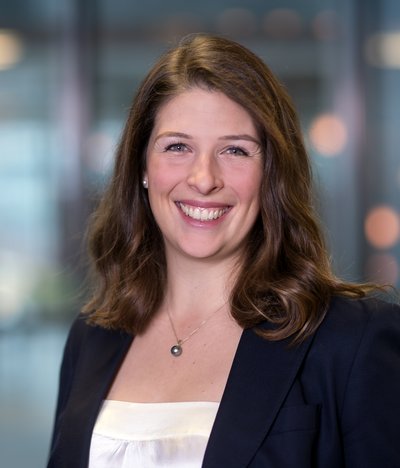Josefine Proll
Department / Institute

RESEARCH PROFILE
Josefine Proll is an Assistant Professor in the Department of Applied Physics at Eindhoven University of Technology (TU/e). Since secondary school, she has been passionate about solving the worlds energy problem. On learning about nuclear fusion and its potential to solve exactly that problem Josefine decided she wanted to work on making nuclear fusion a reality. One of the main issues in fusion research is to keep the heat within–necessarily very hot–fusion plasmas. Various transport phenomena are observed which lead to a loss of heat, and turbulence is currently considered the main problem in fusion devices of the tokamak type (such as the the big experiment ITER currently under construction in southern France) as well as their twisted siblings, stellarators.
Josefine’s research looks into which instabilities drive turbulence, how they interact with each other and how they saturate. Her theory has predicted, for example, that a certain type of instability cannot exist, if the magnetic cage of the stellarator is shaped in a clever way – as is actually the case in the newly built German stellarator experiment Wendelstein 7-X. Josefine collaborates with the experimentalists there to test her theory, which, if confirmed, leads to the conclusion that clever shaping can reduce levels of turbulence. Ultimately, she aims to incorporate this knowledge into optimisation schemes, to find the perfect shape for the next generation – possibly net energy generating – stellarator.
Knowing that I’m working on nuclear fusion – a technology that can solve the worlds energy problem – is something that motivates me every day.
ACADEMIC BACKGROUND
Josefine Proll obtained her BSc in Physics from the Julius-Maximilians-Universität Würzburg, Germany. She then obtained a MSc in Physics from Imperial College London, working at the British fusion lab CCFE near Oxford. Following this, she obtained her PhD at the Max Planck Institute for Plasma Physics in Greifswald, Germany, currently home to the Wendelstein 7-X fusion experiment. She was a postdoctoral fellow within the Max-Planck/Princeton Center for Plasma Physics from 2014 to 2015 and working under a Helmholtz PostDoc Grant from 2015 to 2016.
In her work, Josefine collaborates closely with the Princeton Plasma Physics Laboratory, Princeton, USA, the National Institute for Fusion Science, Toki, Japan and the University of Wisconsin, Madison, USA.
Recent Publications
-
P. Mulholland,K. Aleynikova,B. J. Faber,M. J. Pueschel,J. H.E. Proll,C. C. Hegna,P. W. Terry,C. Nührenberg
Enhanced Transport at High Plasma Pressure and Subthreshold Kinetic Ballooning Modes in Wendelstein 7-X
Physical Review Letters (2023) -
R. J.J. MacKenbach,J. H.E. Proll,R. Wakelkamp,P. Helander
The available energy of trapped electrons
Journal of Plasma Physics (2023) -
R.J.J. Mackenbach,J.H.E. Proll,G. Snoep,P. Helander
Available energy of trapped electrons in Miller tokamak equilibria
Journal of Plasma Physics (2023) -
Y. Suzuki,J.H.E. Proll
The effect of pressure anisotropy on 3-D MHD stability for low magnetic field LHD equilibria
Journal of Plasma Physics (2023) -
R.J.J. Mackenbach,J.M. Duff,M.J. Gerard,J.H.E. Proll,P. Helander,C.C. Hegna
Bounce-averaged drifts
Physics of Plasmas (2023)
Ancillary Activities
No ancillary activities